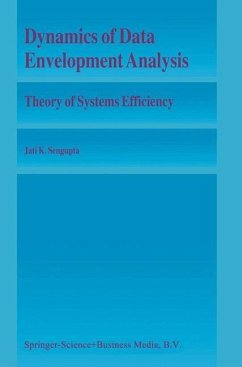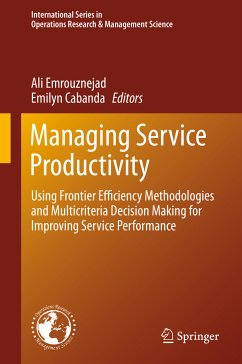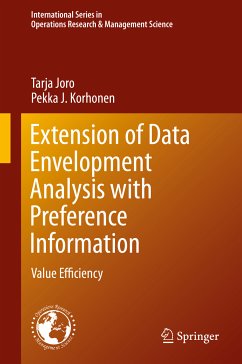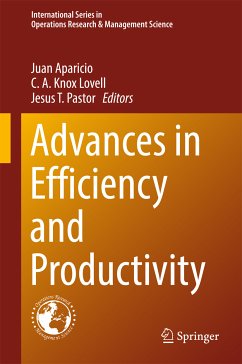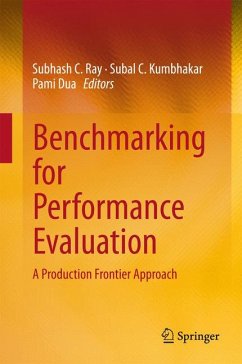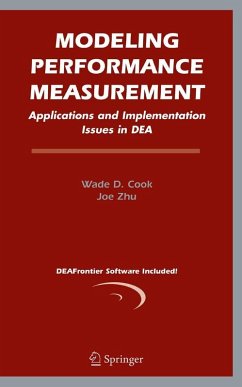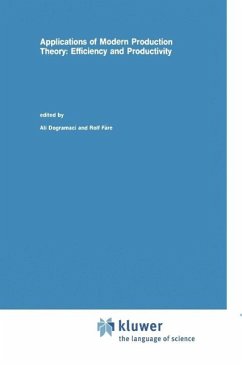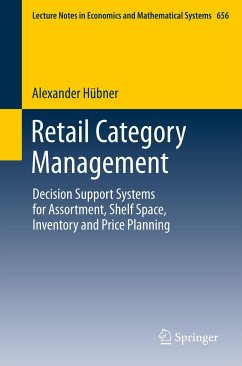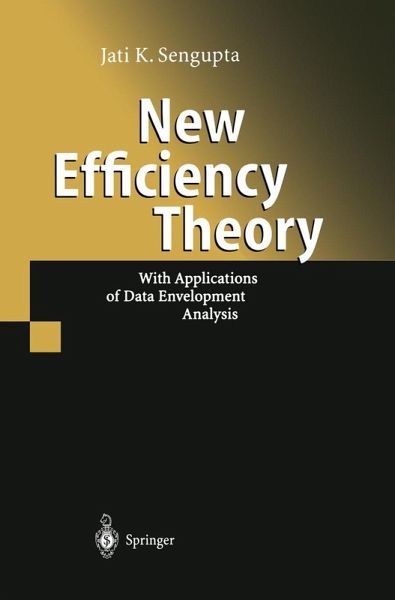
New Efficiency Theory (eBook, PDF)
With Applications of Data Envelopment Analysis
Versandkostenfrei!
Sofort per Download lieferbar
72,95 €
inkl. MwSt.
Weitere Ausgaben:

PAYBACK Punkte
36 °P sammeln!
This monograph develops and generalizes the new efficiency theory by highlighting the interface between economic theory and operations research. Some of the outstanding features of this monograph are: (1) integrating the theory of firm efficiency and industry equilibrium, (2) emphasizing growth efficiency in a dynamic setting, (3) incorporating uncertainty of market demand and prices, and (4) the implications of group efficiency by sharing investments. Applications discuss in some detail the growth and decline of US computer industry, and the relative performance of mutual fund portfolios.
This monograph develops and generalizes the new efficiency theory by highlighting the interface between economic theory and operations research. Some of the outstanding features of this monograph are: (1) integrating the theory of firm efficiency and industry equilibrium, (2) emphasizing growth efficiency in a dynamic setting, (3) incorporating uncertainty of market demand and prices, and (4) the implications of group efficiency by sharing investments. Applications discuss in some detail the growth and decline of US computer industry, and the relative performance of mutual fund portfolios.
Dieser Download kann aus rechtlichen Gründen nur mit Rechnungsadresse in A, B, BG, CY, CZ, D, DK, EW, E, FIN, F, GR, HR, H, IRL, I, LT, L, LR, M, NL, PL, P, R, S, SLO, SK ausgeliefert werden.



